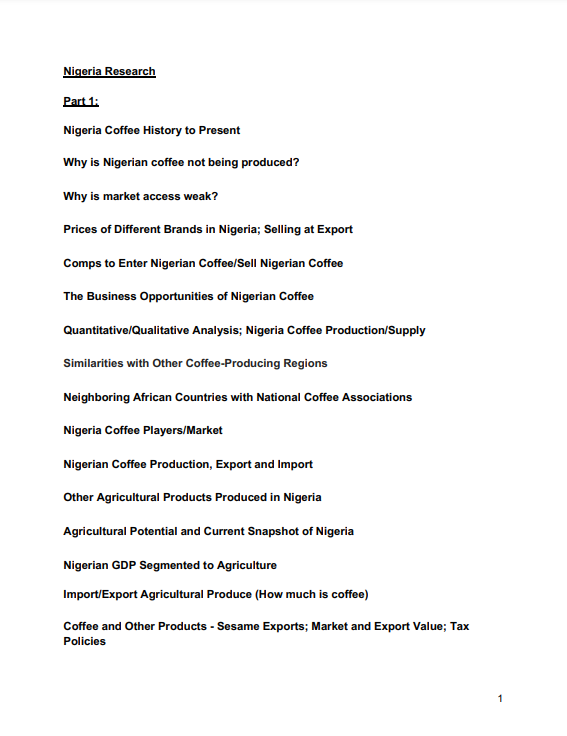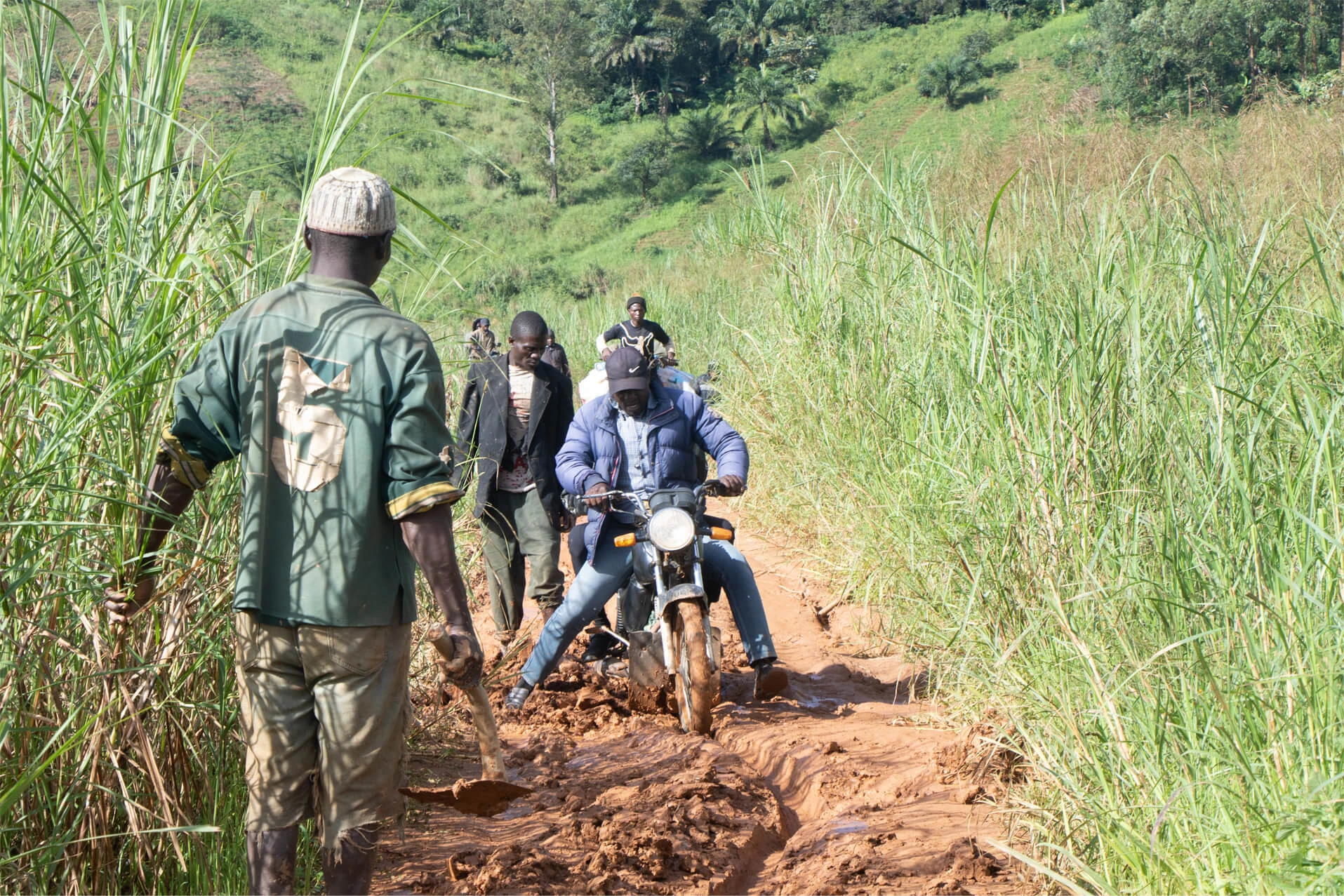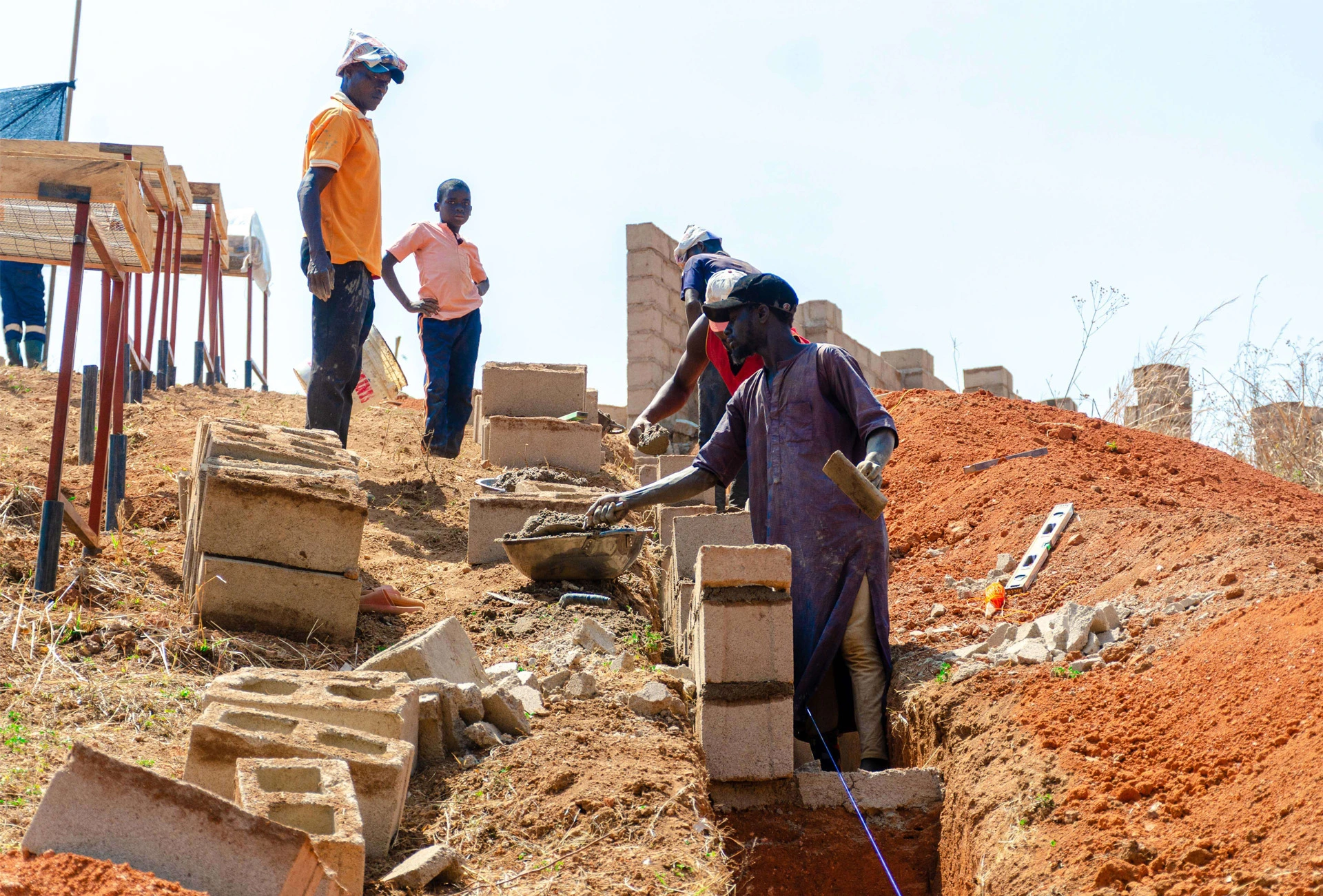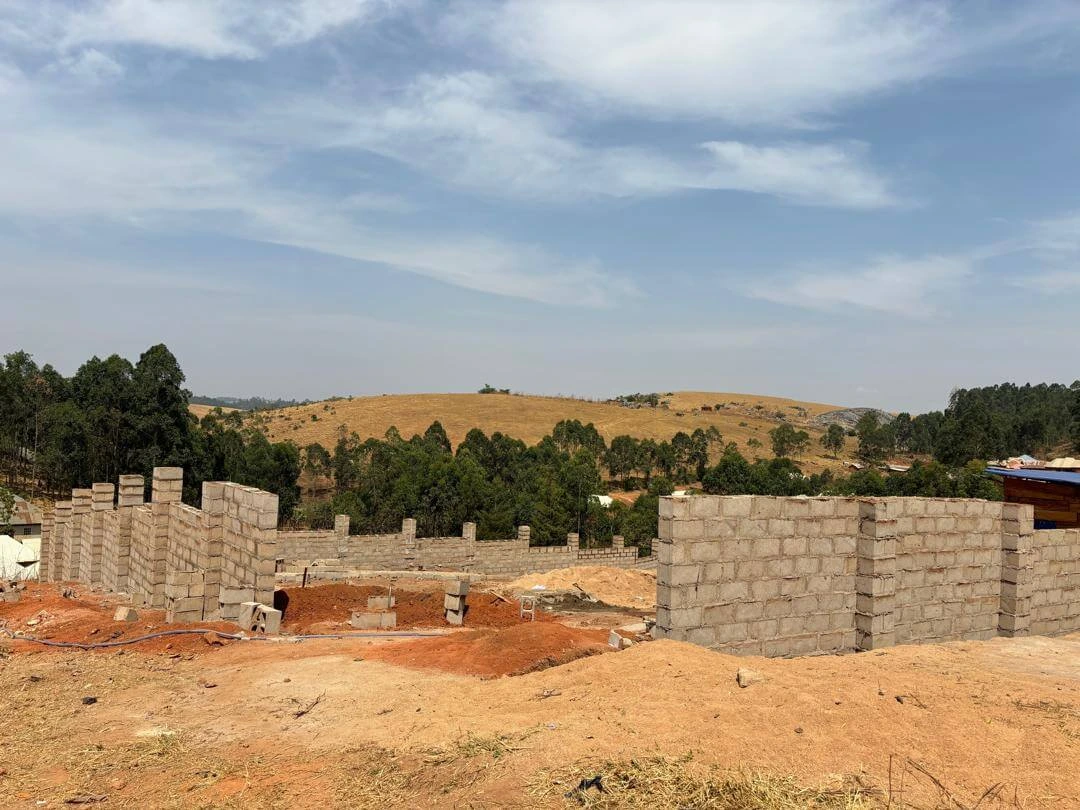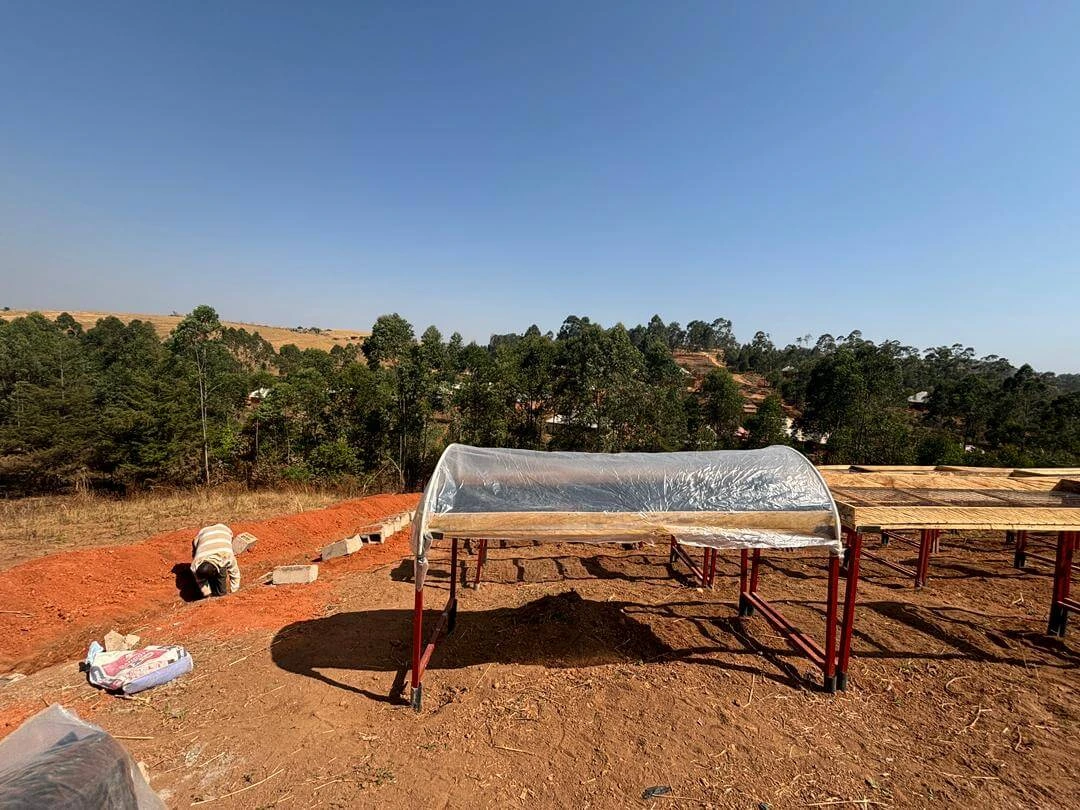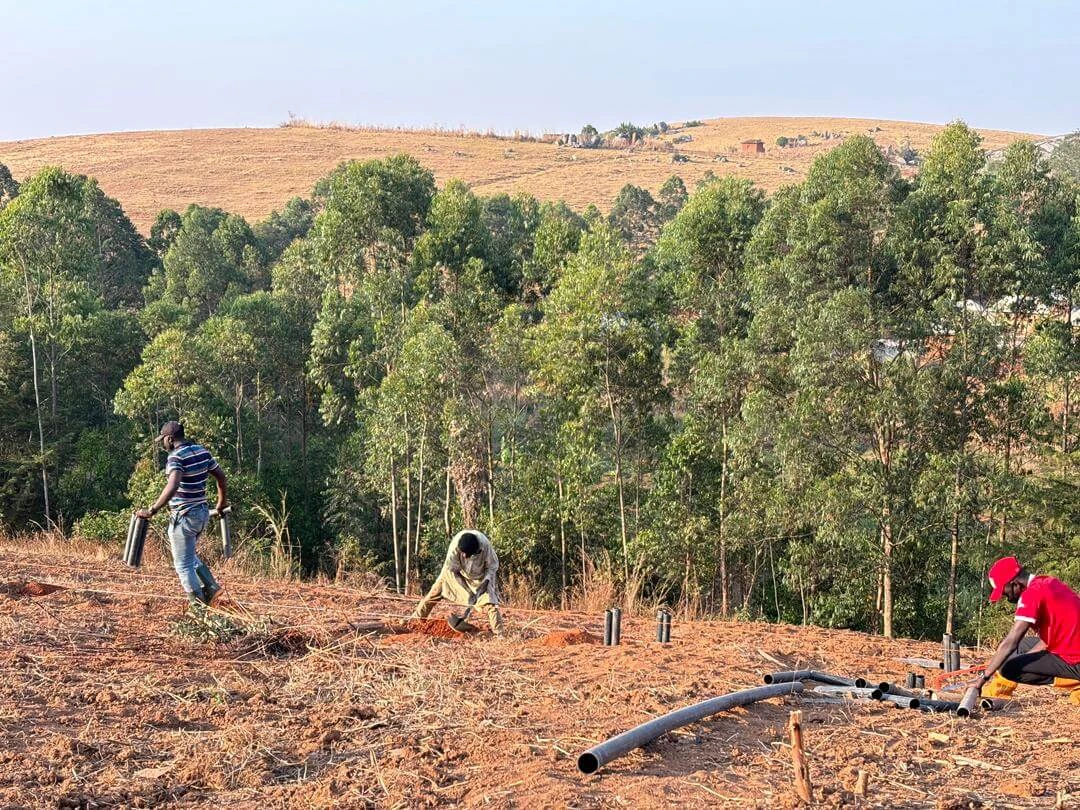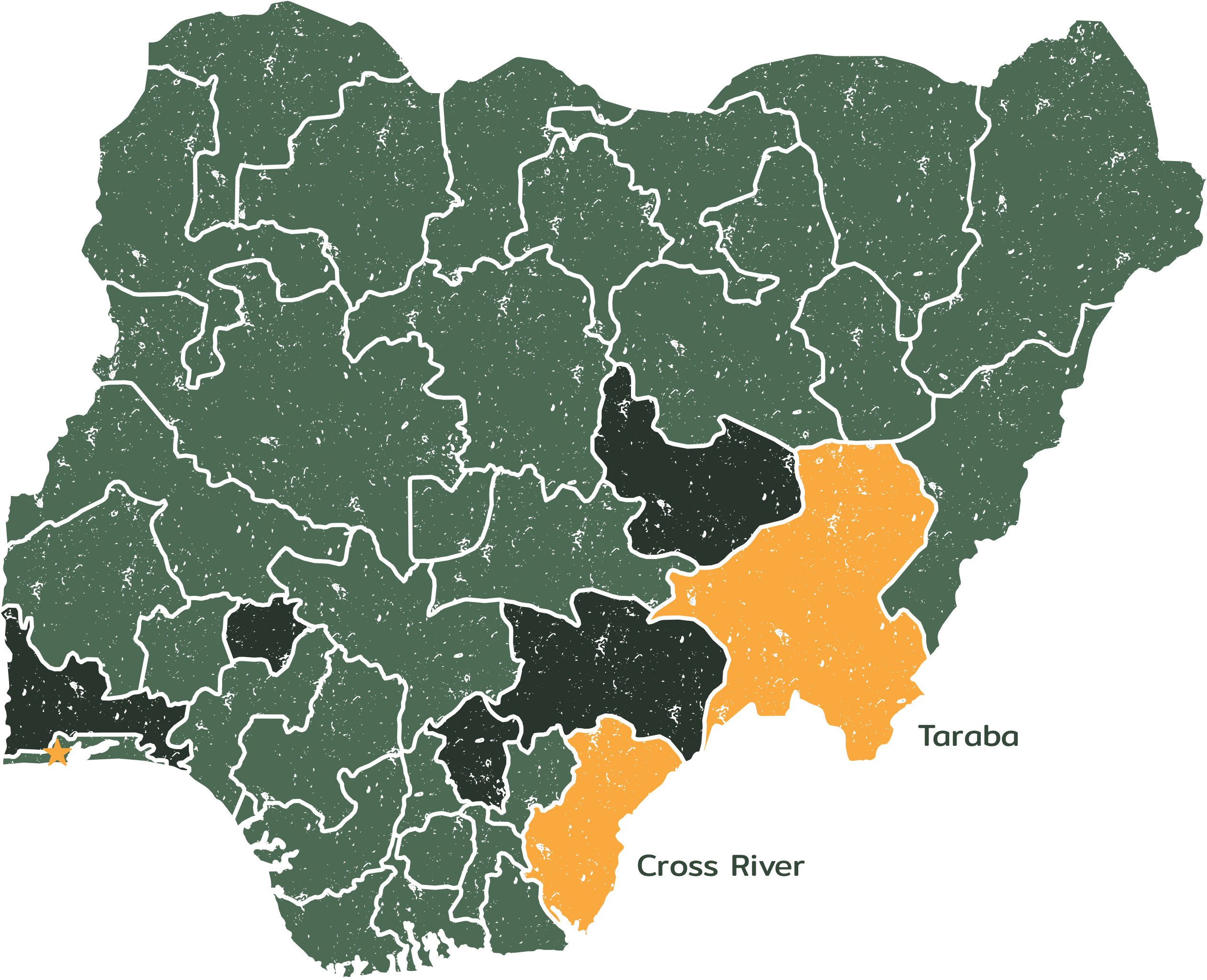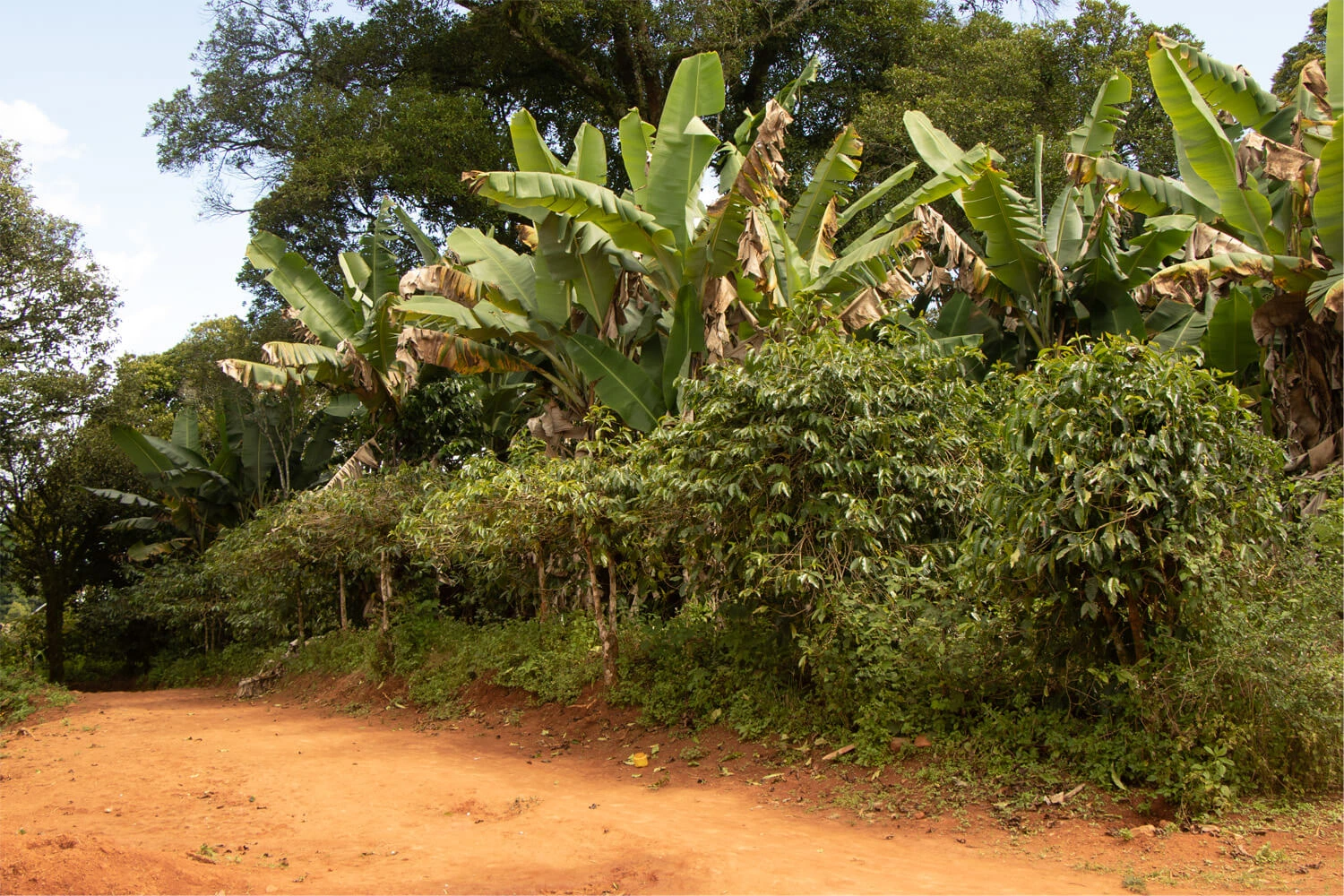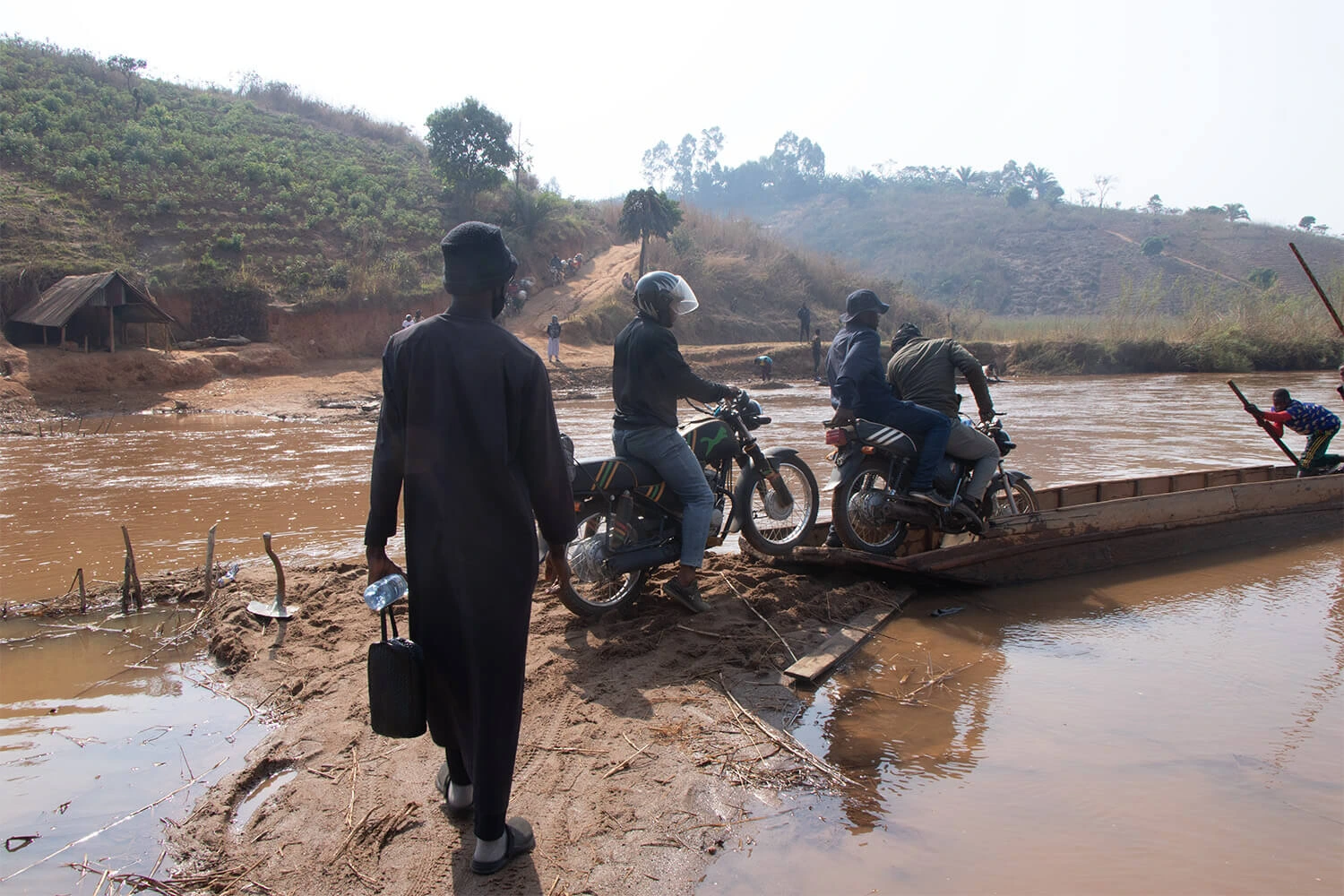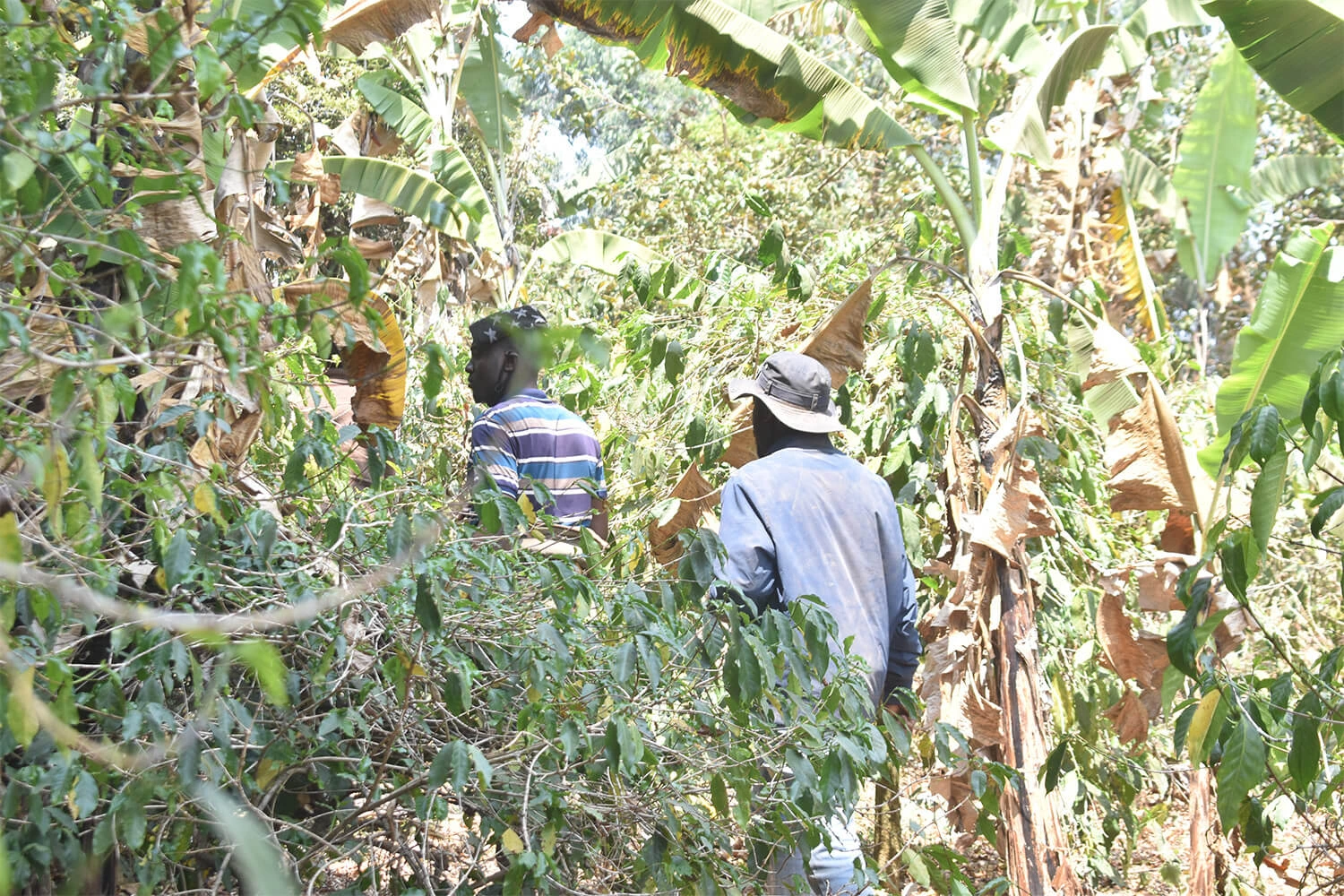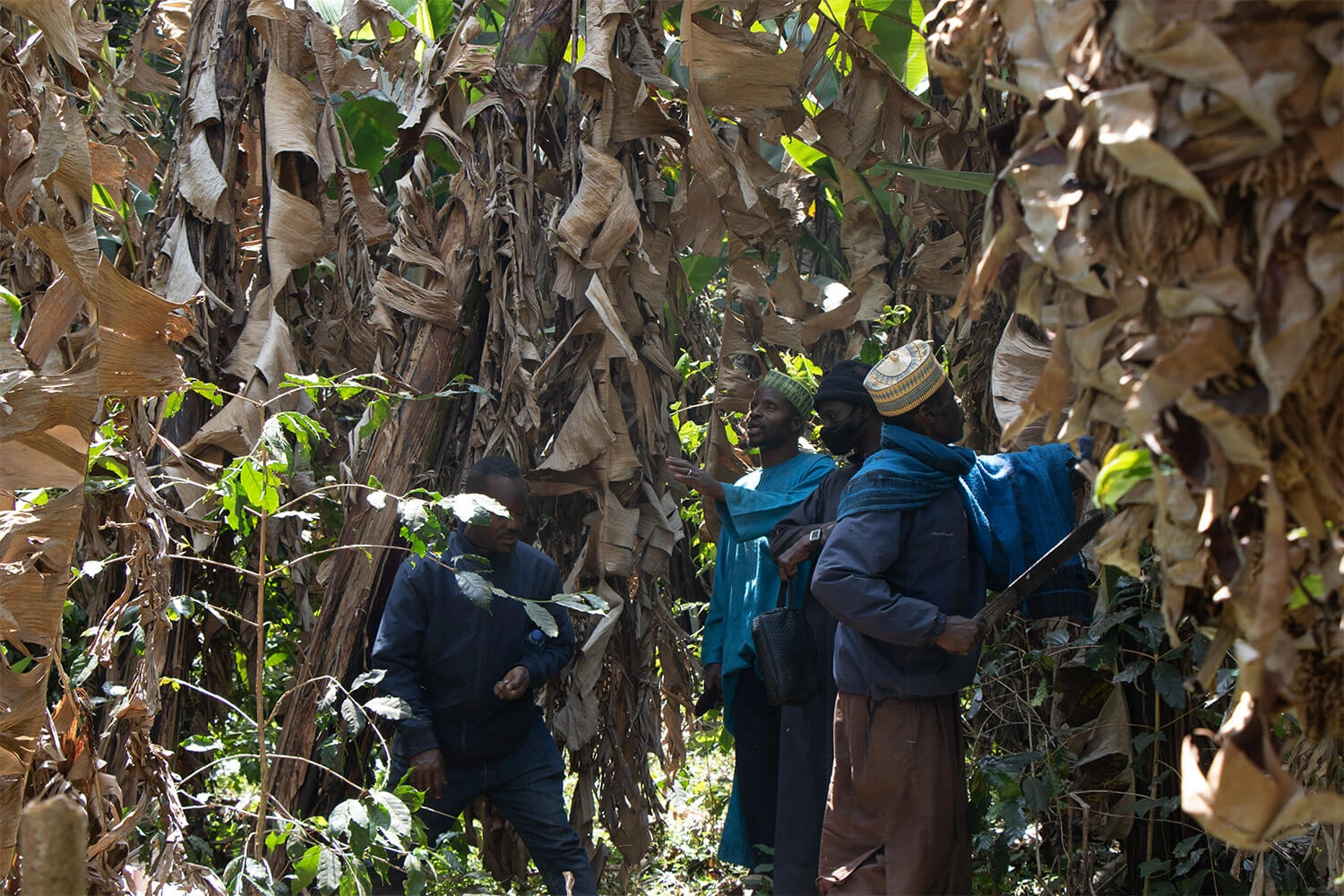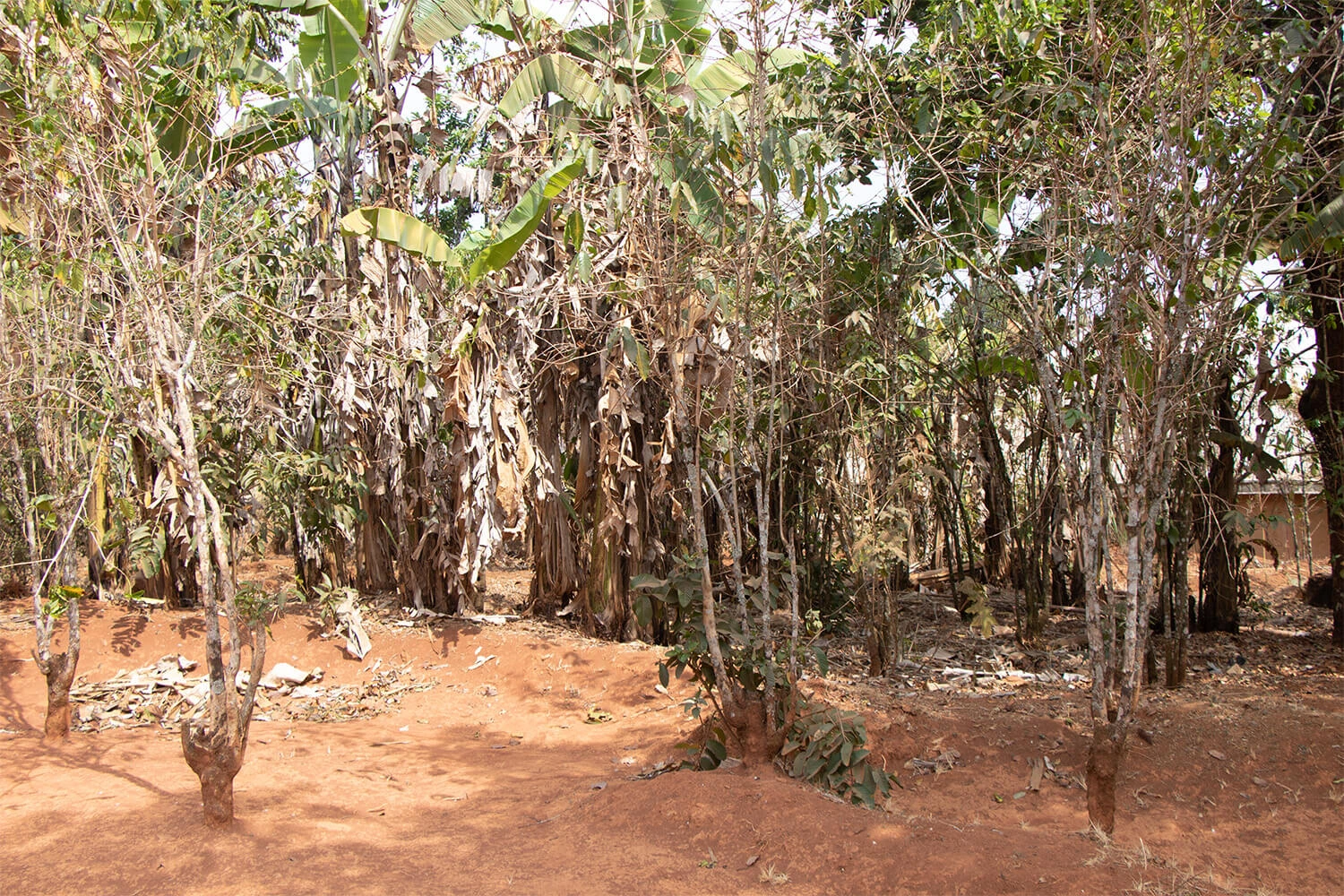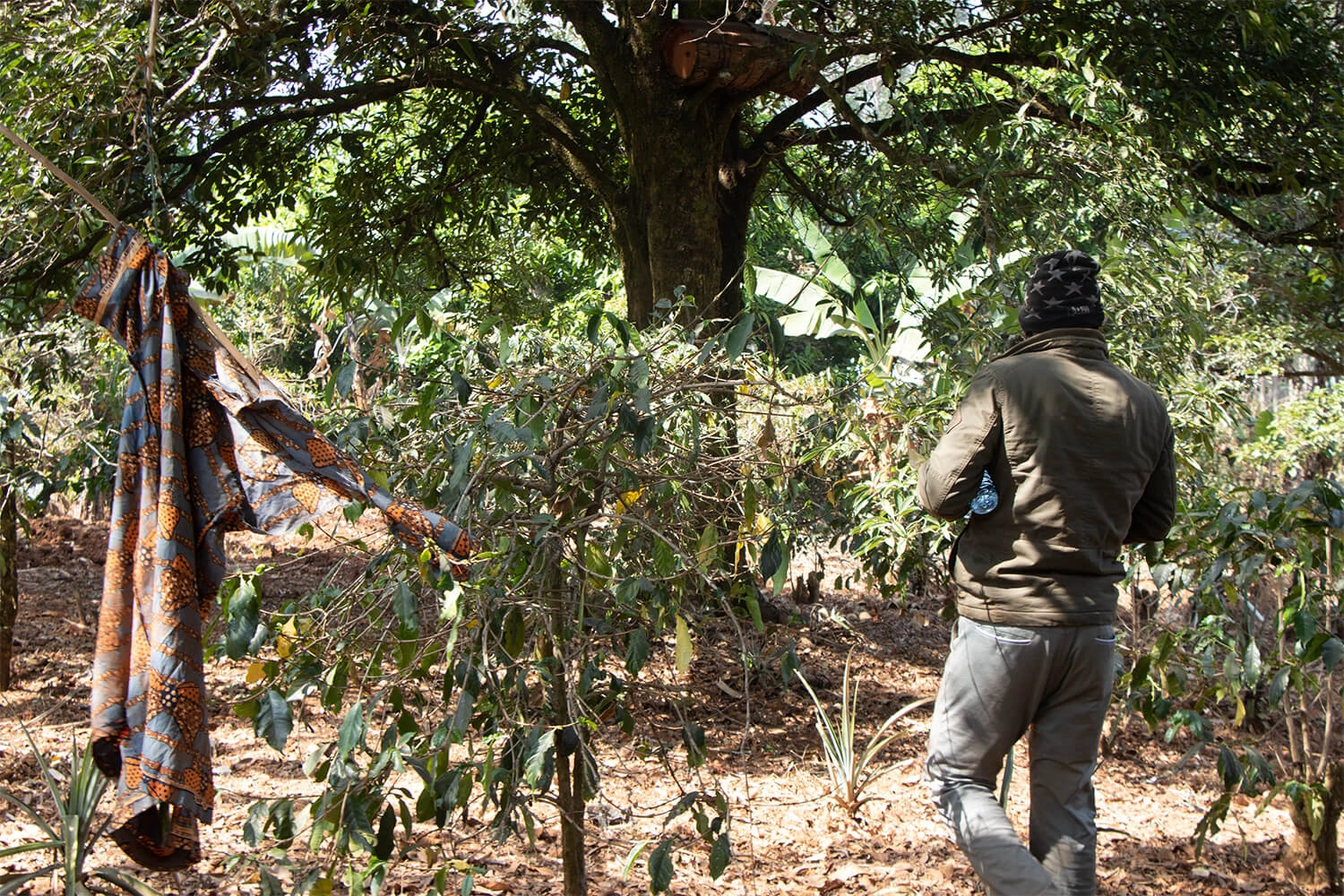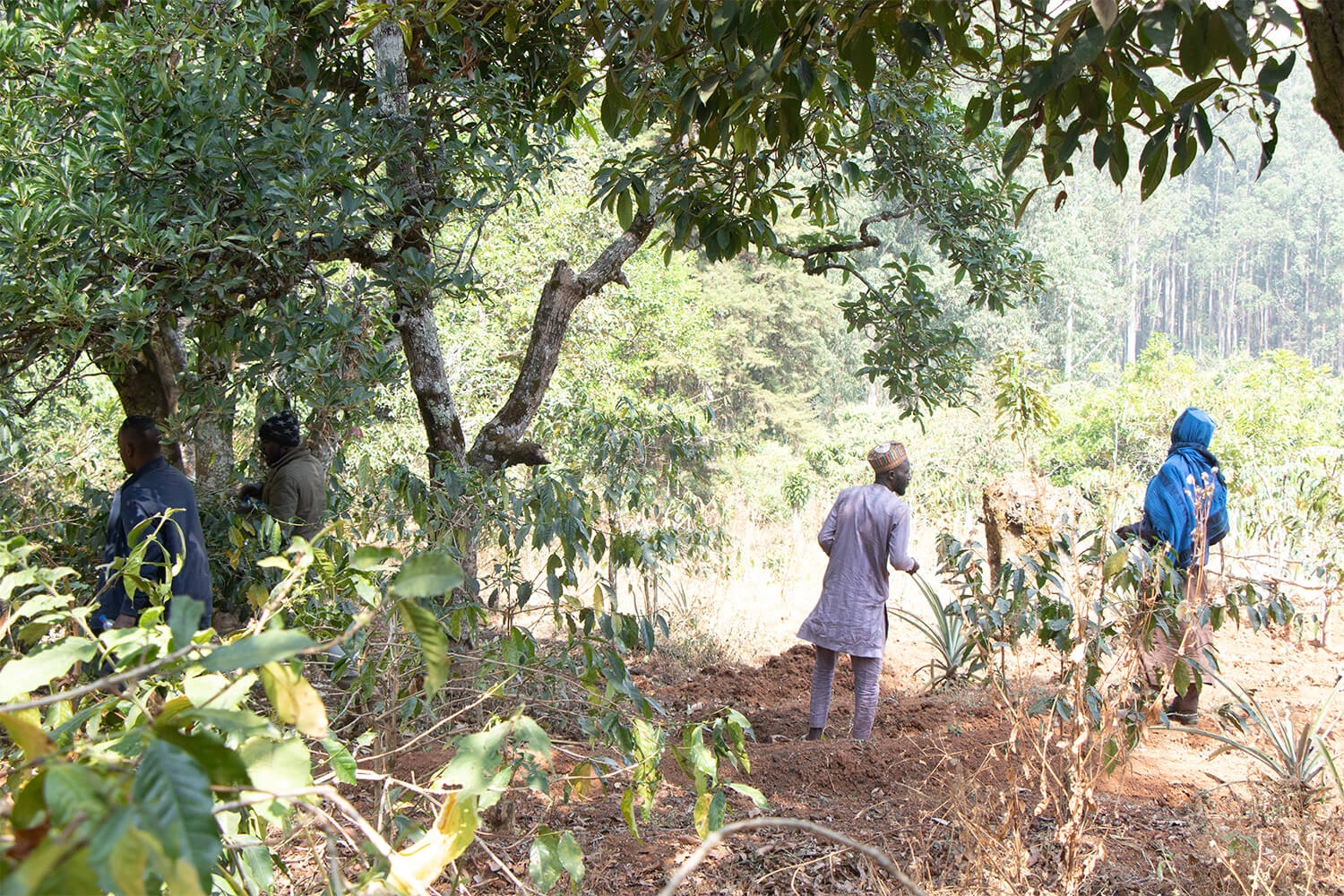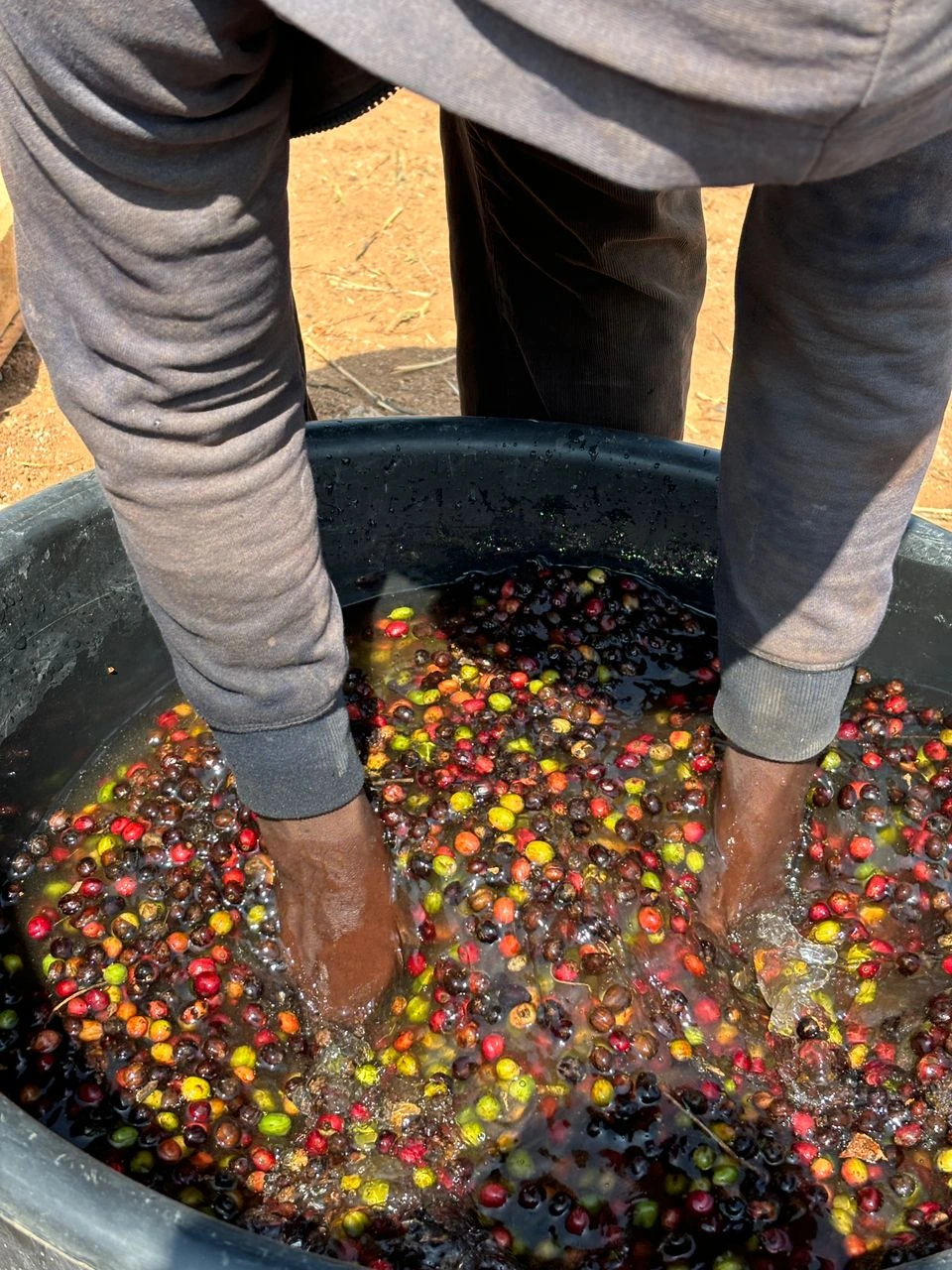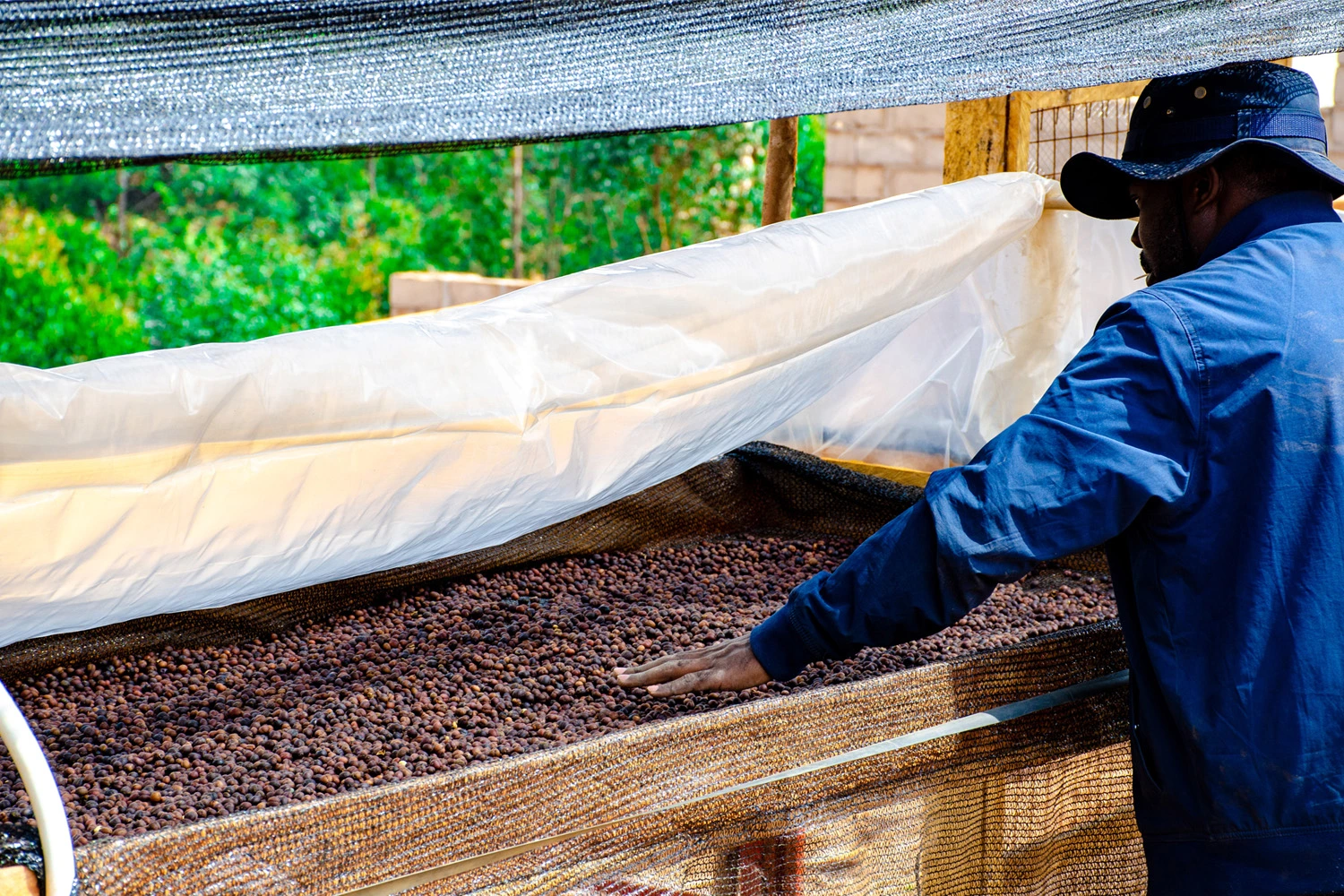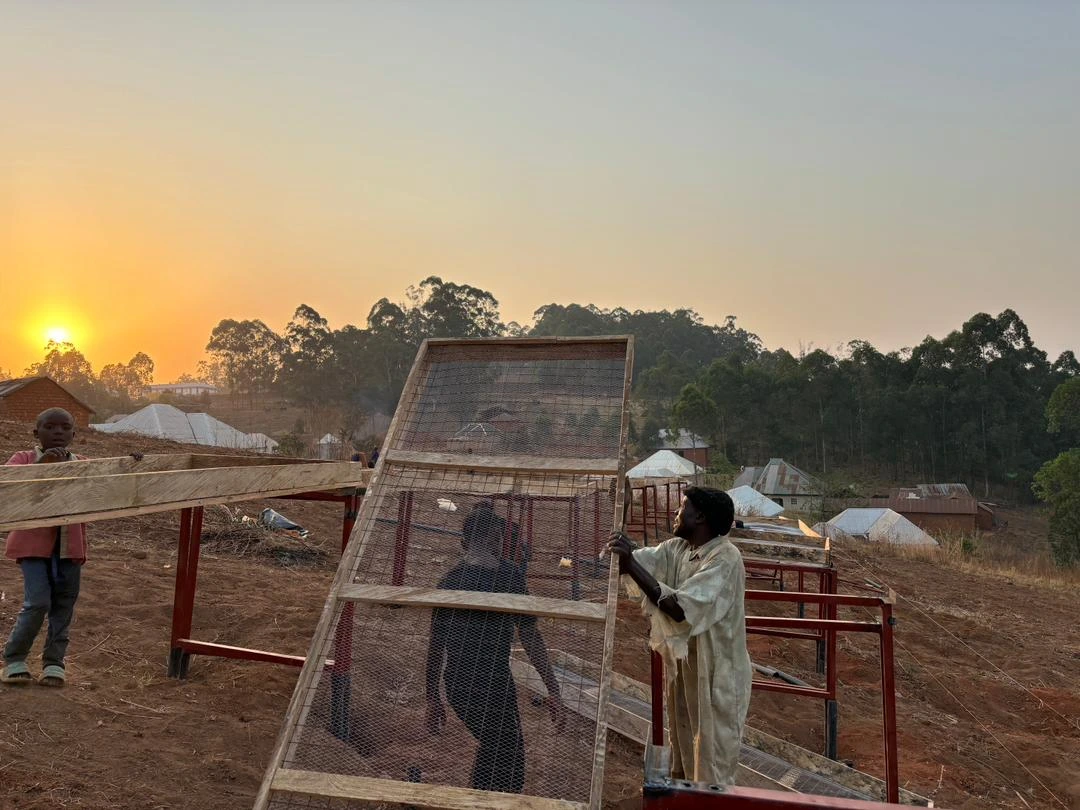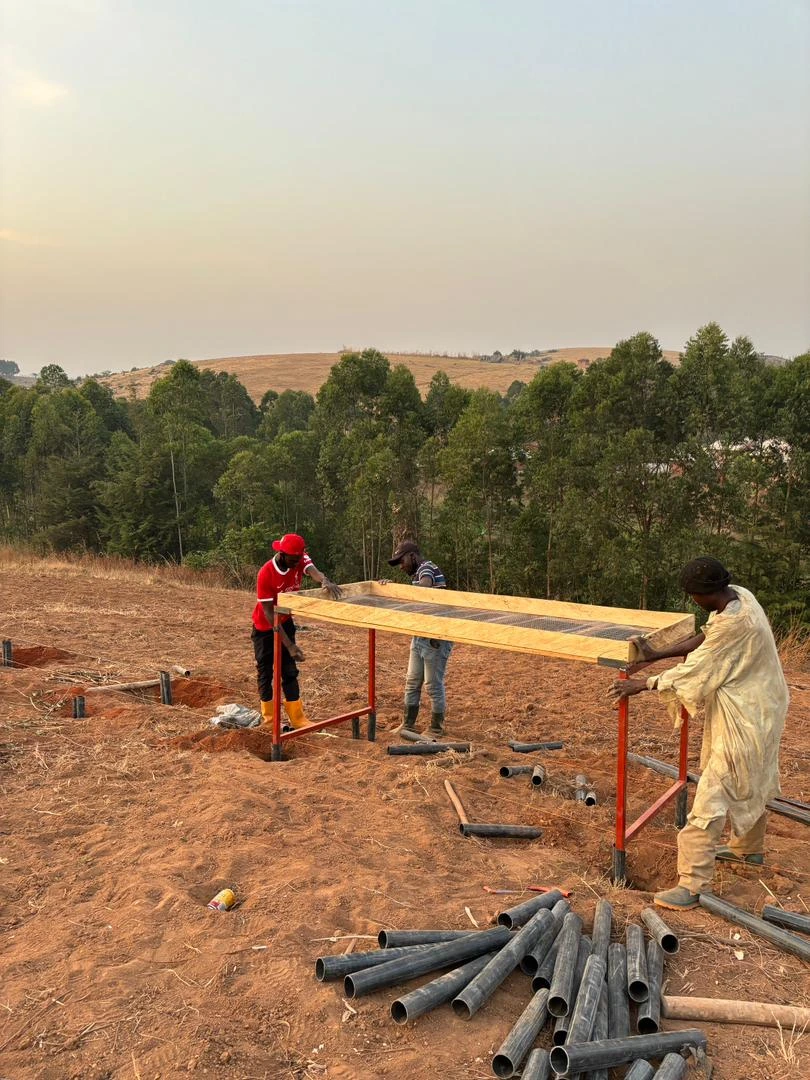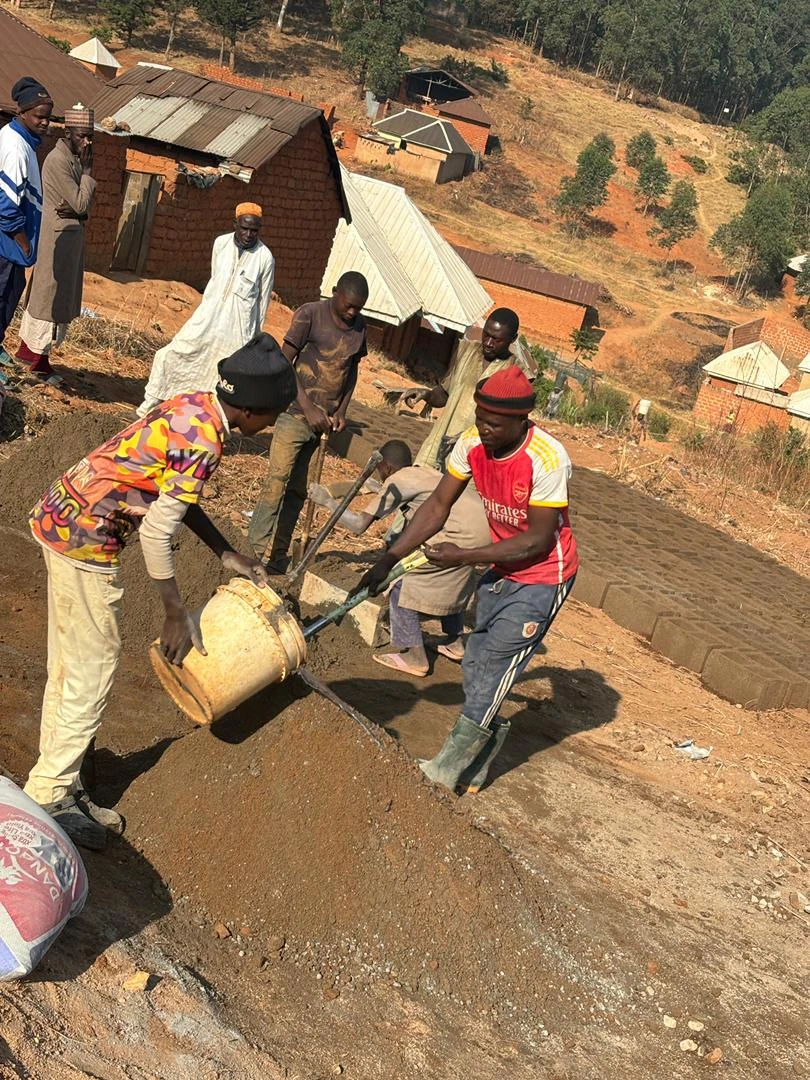
Sourcing Nigerian coffee
Learn about where Nigerian coffee grows, the challenges we’ve faced sourcing it, and what we’re doing to improve.
Learn more

Reaching Nigerian coffee producers
As part of our on-the-ground work, our team has to travel to reach remote coffee farming communities in Nigeria.
Contact us to learn more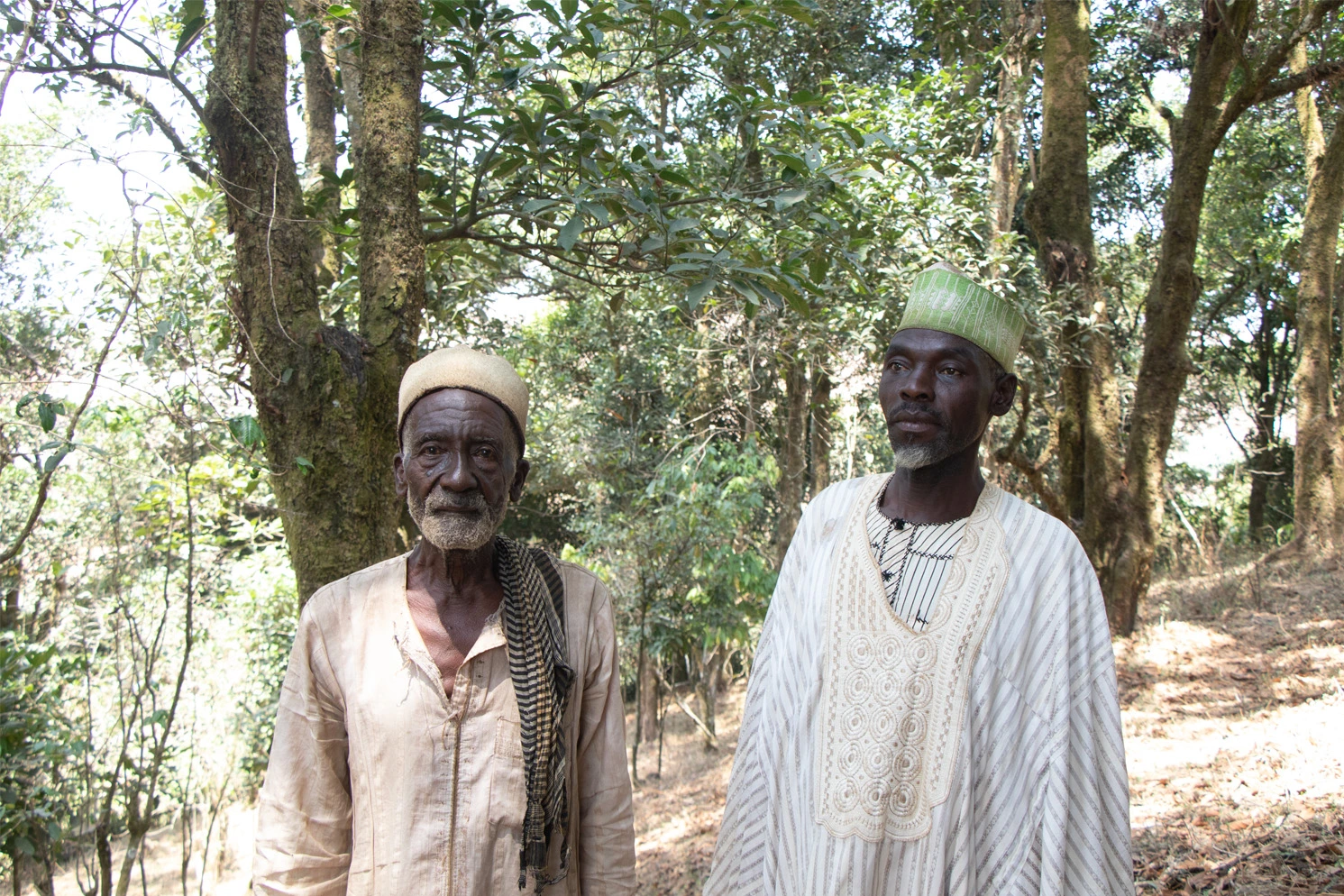
Knowledge gaps
Nigerian coffee production has been in decline for decades. This means generational knowledge about producing high-quality coffee has not been effectively passed down as it would have been in other countries.
This means that many farmers don’t know how to produce consistently high-quality coffee – whether that’s pruning their trees, maintaining farms, spotting pests, and using the correct agricultural inputs.
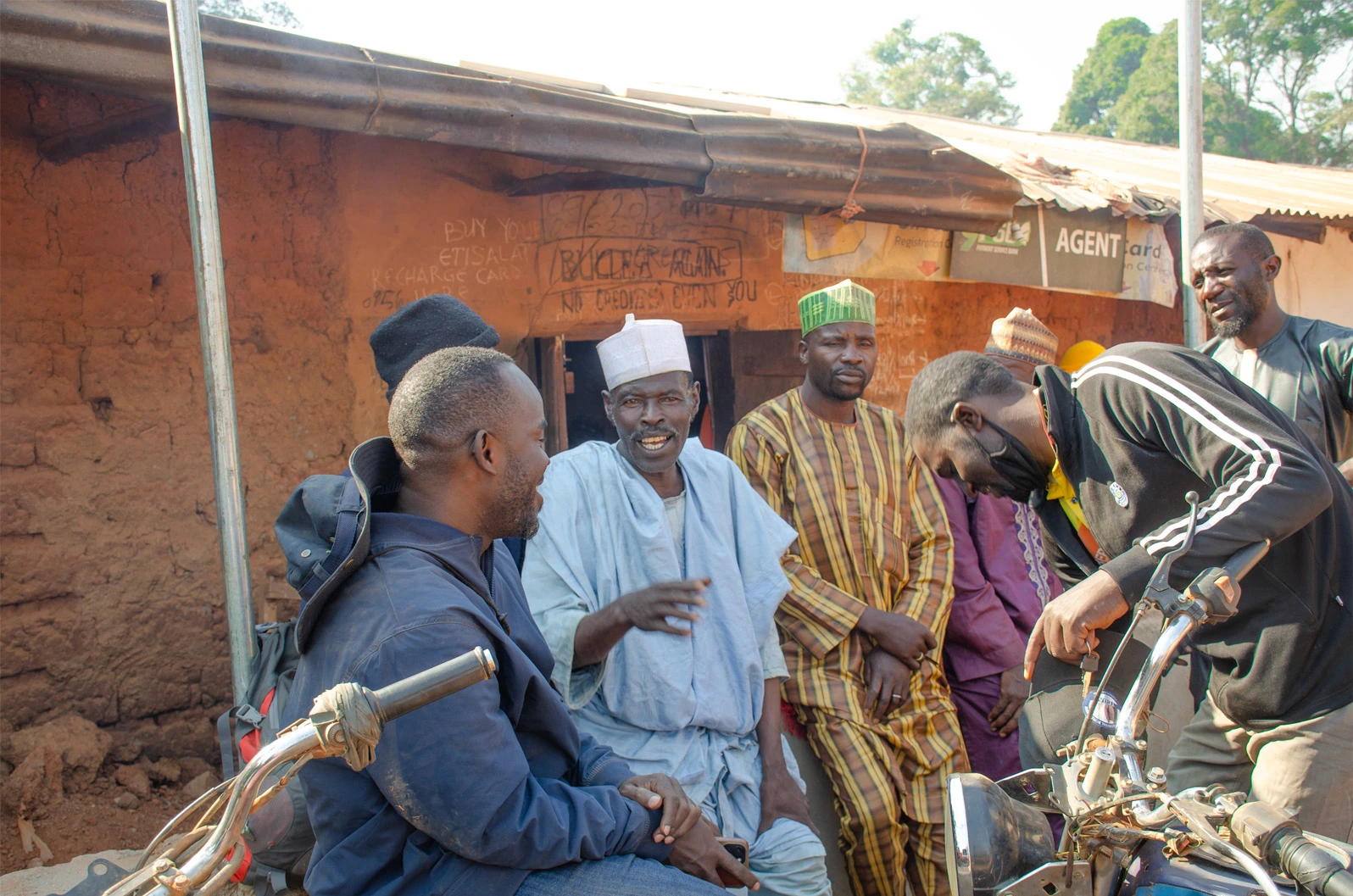
Communication
Nigerian coffee communities are more bureaucratic than you might expect. That makes it more difficult than in other origin countries to simply meet farmers and speak to them.
Before we do this, we require the approval of the wider community – which means speaking to other family and community members before our team approaches producers. A wider “one-man culture” – especially in rural areas of the country – makes this a challenge.
Farm maintenance
In regions like Taraba and Cross River, coffee farms are located in dense jungles – and they are often not well-maintained. You can see some more evidence of this in the photos below.
We are creating a programme to teach producers how to better maintain their farmland and improve the yield and quality of their coffee plants as a result; however, this will take time.
Harvesting practices
Because of a wider knowledge gap with coffee production, farmers often do not pick cherries when they are at their ripest.
In samples we received in early 2025, we saw that green and yellow underripe cherries in the harvest, which reduces the overall quality of each lot significantly. While we are educating Nigerian coffee farmers on best practices – to move towards sourcing and processing practices that are expected from specialty coffee – this is something else that will take time.
We have already installed improved equipment and infrastructure for fermenting and drying coffee at our processing unit, and expect quality to increase significantly in the short and long term.
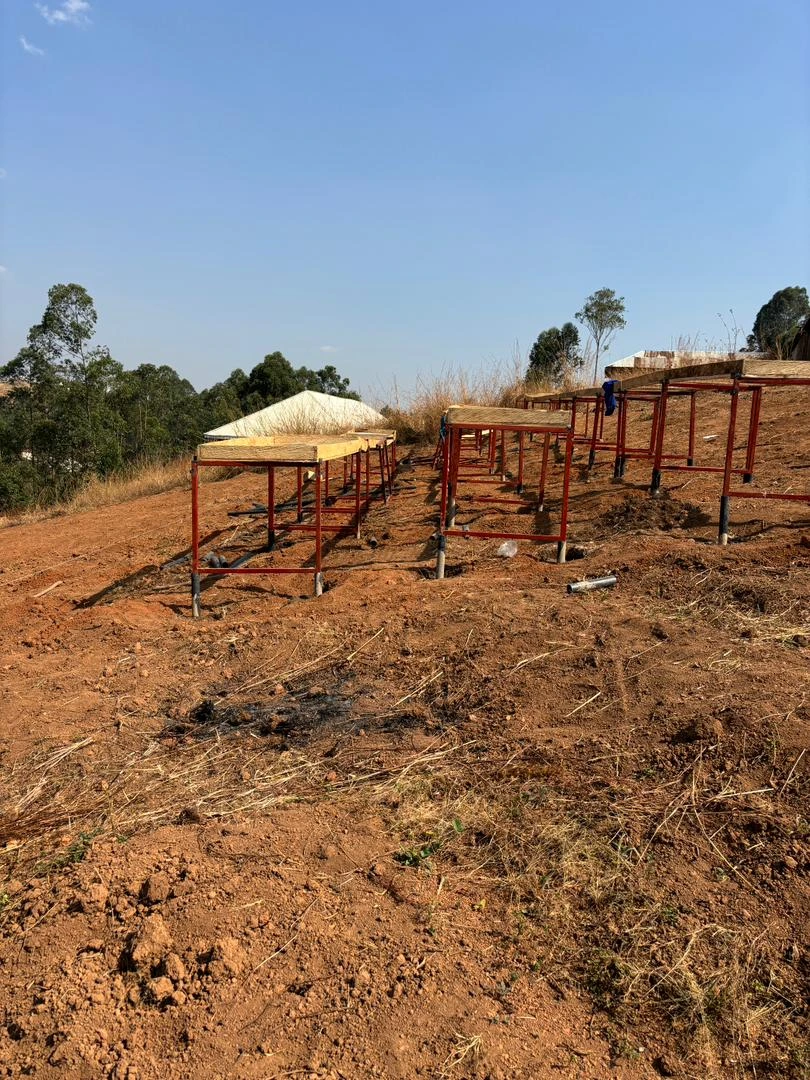
Reputation
Our last challenge is perhaps the most significant. Nigerian coffee is not well-known in the international coffee industry, especially with buyers.
In terms of raw supply and demand, Nigeria would be considered a rare, premium origin – much like other East African coffee-growing countries, such as Kenya. But translating everything we’re doing into market value is a challenge.
We face a wider issue with improving the awareness of the value and quality of Nigerian coffee. The country’s rich history and the rarity of its coffee – along with the rapidly-improving quality of the farms we’re sourcing from – will help, but it will not be easy.
What are we doing to address these challenges?
Alongside building a coffee processing unit for our 2026 harvest and beyond, we are also addressing these challenges in several other ways:
Transportation
Logistics and transport for both people and the coffee we harvest is one of the most significant challenges we face – especially given that many of the villages we source from are hours away from the coffee processing unit.
To address this, we’ve been investing in an advanced fleet of vehicles for our on-the-ground operations. This means more motorcycles to reach these areas, and more trucks to transport coffee seamlessly from farmgate to the processing centre.
Knowledge sharing
A widespread knowledge gap among Nigerian farming communities is the source of many of our challenges. That’s why we’re hiring local people and training them to become our representatives in these coffee-growing communities.
Our farmer relationship managers will speak regularly to the producers, advising them on everything from how to pick the ripest cherries to how they should maintain their farms. At the same time, they report regularly to our team to help us more effectively communicate the value of Nigerian coffee to the industry at large.
Payments infrastructure
Another significant challenge has been arranging payment for farmers – as banking in Nigeria is predominantly mobile. However, by issuing mobile phones to farmers and settling payments via banking apps, we have turned this challenge into a wider positive.
Managing everything through mobile payments improves traceability from farm to cup, providing a record of every transaction.
Frequently asked questions
Learn more about the Nigerian coffee sector below.
Which regions do you source from?

We source from farms in the Taraba and Cross River states. Our partner producers only grow high-quality which has a uniquely recognisable and distinct flavour profile.
How big are the farms you buy from?

We work exclusively with smallholder farmers across the Taraba and Cross River states.
We are investing in processing and harvesting infrastructure in partnership with producers. Market access remains a significant issue for these producers, but the regions have ideal conditions for growing high-quality coffee.
When is the harvest season in Nigeria?

Harvest for the Nigerian coffee sector runs from October to January. Samples are available from March, with lots arriving with roasters around June.
When will samples be ready?

Samples will be ready in March 2026. If you’d like to share your interest, please fill out the form here.


